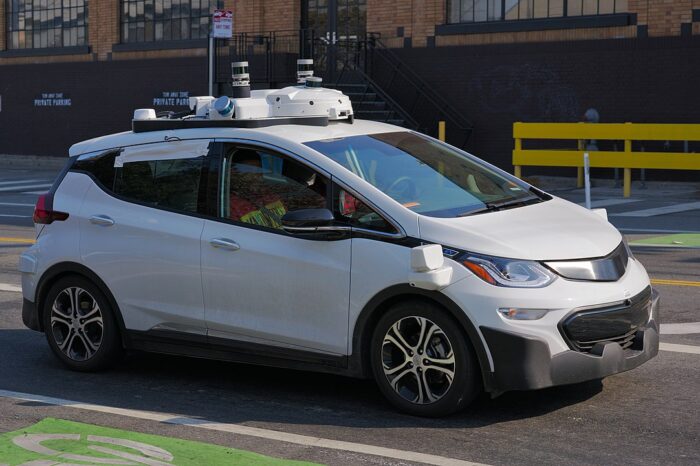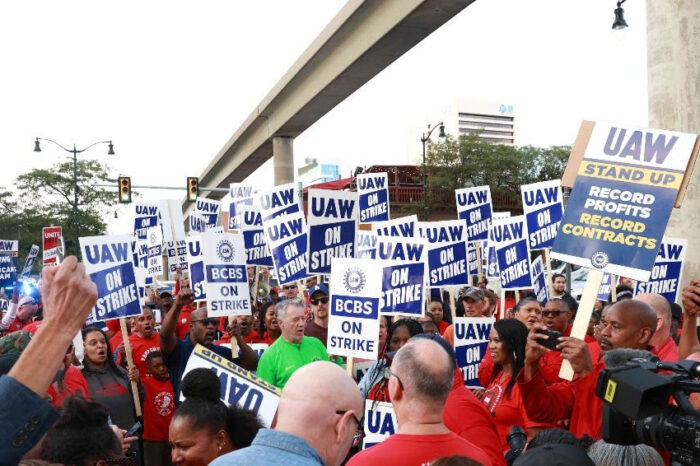Thanks to everyone who joined us at PortMiami, making this year’s CoMotion MIAMI gathering truly unforgettable! In addition to inspiring conversations with a wide range of mobility leaders and thinkers, two of our partners used the occasion to make big announcements:
The Open Mobility Foundation unveiled MDS 2.0, a major upgrade to the open source digital tool that helps cities keep tabs on the rapidly-growing range of technology-enabled mobility and delivery options on the urban right-of-way.
Converge Public Strategies, a leading government relations and PR firm, launched a new practice, Converge: Transport, to better help clients navigate regulation and policy related to mobility and logistics.
There was also plenty of non-Miami news last week. VinFast is going public via SPAC, Uber is dipping its toe into flight bookings, Nuro and Polestar announce layoffs, Washington state implements big reforms to housing rules, Mitt Romney disses bike lanes and Bird releases a sub-par Q1 report, stoking concerns about the economics of scooter-sharing. Plus, we have some thoughtful commentary on how America’s suburbs are changing, a powerful essay from influential urbanists from Nathan L. Glaeser and Carlo Ratti arguing that New York City can address a looming death spiral for commercial real estate by transforming into The Playground City, and an analysis on what even the most bike-friendly cities in the U.S. can learn from the French.
![]()
So is this how Uber finally makes money? Uber starts offering domestic flight bookings in the U.K. This comes a little more than a year after it unveiled plans to become a travel booking platform and about 10 months after it began offering train and bus bookings to UK customers. While Uber has yet to turn a profit in its decade-long campaign to replace taxi cabs, perhaps its efforts to replace Orbitz or Expedia will prove more rewarding.
Nuro lays off 30%: Autonomous delivery robot startup Nuro is not done cutting jobs. The Mountain View company will lay off 30% of its workforce, or about 340 employees. This comes seven months after it showed another 300 workers the door. The big cuts are part of a restructuring aimed at shifting resources from commercial operations to R&D.
VinFast to merge with SPAC: SPACs have certainly taken a hit in the past year, but clearly some still can’t resist the offer of an express lane to the stock exchange. VinFast, the Vietnamese automaker that is just starting to sell EVs in the U.S., announces plans to list on the New York Stock Exchange by merging with Black Spade Acquisition, a Hong Kong-based blank-check company.
Polestar cuts jobs, production guidance: The Swedish-Chinese EV maker announces it will reduce headcount by 10%. It now anticipates manufacturing between 60,000 to 70,000 vehicles; it previously projected 80,000.
Europeans divided on parking: Bolt, the Estonian-based bike-sharing and delivery platform, commissioned a large survey of residents in eight large cities in Portugal, Germany and Norway about converting car-parking to parking for bikes and scooters. Sixty-seven percent of Portuguese respondents were in favor, compared to only 44% of Norwegians and 42% of Germans.
Is Bird on the ropes? The scooter-sharing service’s stock plunges 19% after its Q1 report shows significant drops in revenue and ridership from the same time last year. Bird’s struggle to turn a profit may very well sour investors on the entire shared-scooter industry.
Washington governor signs zoning reform: Prompted by Washington state’s severe housing crisis, Gov. Jay Inslee signs a law overriding single-family zoning in municipalities. The law requires towns and cities to allow duplexes and four-plexes on parcels that were previously restricted to one unit. Yay, we say!
What was that, Mitt? In recent years Sen. Mitt Romney has earned a reputation as a voice of sobriety in an otherwise intemperate Congress. But then he opened his mouth about bike infrastructure. He tells Business Insider that reducing car lanes to add bike lanes is the “height of stupidity,” claiming that it would lead to greater congestion and therefore more emissions. His remarks drew a rebuke from a coalition of bicycling advocates in Utah. Hawaii Sen. Brian Schatz, the author of a bill to create an e-bike rebate, called Romney’s comments “wacky.”
![]()
What San Francisco can learn from Paris: Roger Rudick, a writer for StreetsBlogSF, travels to Paris to learn how the French are transforming the formerly bike-hostile city into a cycling utopia. He contrasts the bold action being taken in Paris with the baby steps being taken in even America’s most progressive city governments (cough, cough, San Francisco).
Who does suburbia serve? As voters and lawmakers in New York push back on efforts to allow different types of housing in suburban communities, the New York Times’ Ginia Bellafante examines how zoning rules that prioritize single-family homes conflict with America’s demographic trends. Here’s one striking change: 60 years ago, 44% of households were married couples with children. Today, only 19% are.
How Copenhagen is becoming more playful: Politico takes a look at what the Danish capital has done to make previously mundane aspects of the urban landscape –– waste incinerators, parking garages –– interesting and fun.
And speaking of fun, can New York become ‘The Playground City’? Writing in the New York Times, urbanist scholars Nathan Glaeser and Carlo Ratti argue that the 26 Empire State Buildings worth of vacant office space in the Big Apple offers the city an opportunity to reinvent itself, just as it has many times before. Among other things, they argue the city must ditch use-specific zoning rules, animate the streetscape with new recreation opportunities and start imposing the same taxes on online retailers that brick-and-mortar businesses pay. Great ideas, we say.
…but converting offices to housing isn’t so simple: It’s not just heavy-handed regulation that is preventing America’s increasingly vacant office buildings from becoming much-needed housing. Ben Abramson of Strong Towns explains the many engineering and architectural challenges involved: HVAC, plumbing, windows, floor plates and, last but not least, “ugliness.”
Enjoy the Week in Review? Get it delivered directly to your inbox by signing up for the CoMotion NEWS newsletter.






